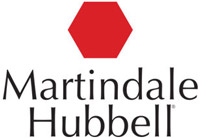Due to precautions related to COVID-19, we have expanded our options for remote consultations. Please contact our office to
discuss whether a full phone consultation or video conference is appropriate for your situation.
Tests used to diagnose a herniated disk
Vertebral disks are structures found between the bones of your spine. They have a rubber-like consistency and serve to cushion your vertebrae. There are two basic parts of a vertebral disk: a tough outer shell surrounding a gelatinous nucleus. The soft inner layer can push through the outer layer if the latter becomes torn. The medical term for this is a herniated disk.
Though relatively uncommon, a tear in the outer layer of the disk can occur because of trauma from a car accident. Symptoms of a herniated disk can travel from your back into your arms and legs and include weakness, pain, numbness and tingling. If you experience such symptoms after a car accident, your doctor may test for a herniated disk.
Neurological tests
A herniated disk can put pressure on your spine and/or your nerve roots, which can result in neurological symptoms in your upper or lower extremities. Your doctor may perform neurological tests to assess your nerve function.
Electromyography and nerve conduction studies measure electrical activity in your nerves and muscles. Nerve conduction studies accomplish this by placing electrodes on your skin, while electromyography involves sticking a needle through your skin into the muscle.
Imaging tests
There are several tests that can take pictures of your spine and related structures. A myelogram involves taking X-rays of your spine after an injection of a special dye that shows up on X-ray images. This reveals any areas of pressure on your nerves or spinal cord. An MRI can confirm the location of disk herniation with the use of a strong magnetic field and radio waves. It can also indicate the affected nerves.
Once you receive a diagnosis of disk herniation, your doctor may recommend physical therapy and/or medications for treatment. It is usually only if such conservative measures fail that a doctor may recommend surgery for a herniated disk.
Allow us to demonstrate how we strive to exceed clients’ expectations. We hope to hear from you soon.







Make Contact With Us Today
Initial consultations are always free at KRA Legal PC. We help achieve justice for injured people. You will owe no fees unless we win compensation for you.
Fields marked with an * are required
